Announcement
Aug 01 2022
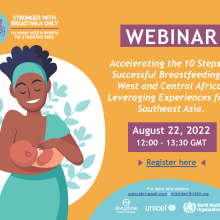
WEBINAR: Accelerating the 10 Steps to Successful Breastfeeding in West and Central Africa. Leveraging Experiences from Southeast Asia
The Stronger with Breastmilk Only regional initiative, a collaboration of UNICEF, WHO and Alive & Thrive, is pleased to invite stakeholders to a 90-minute webinar on August 22 at 12:00 GMT to discuss how to accelera
Guide/Manual
Feb 09 2022
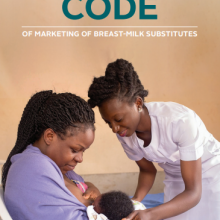
A Quick Guide: The International Code of Marketing for Breast-milk Substitutes
Updated February 2022!
This quick guide summarizes the International Code of Marketing of Breast-milk Substitutes (The Code) and relevant resolutions of the World Health Assembly that help protect breastfeeding around the globe.
Brief, Handout
Oct 28 2020
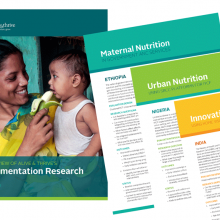
An overview of Alive & Thrive's implementation research
Alive & Thrive's implementation research spans its program areas, seeking to answer "how" to implement effective interventions and policies. Active studies are detailed in the attached documents.
Handout
Apr 21 2020
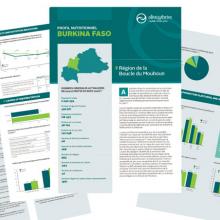
Profils nutritionnels de six régions du Burkina Faso
Handout
Apr 21 2020
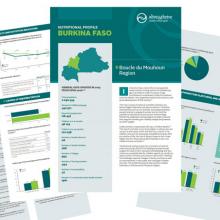
Burkina Faso Nutrition Profiles for Six Regions
These nutrition profiles present MIYCN data for six regions of Burkina Faso, including data on health and nutrition indicators, causes of undernutrition, nutrition promotion platforms and antenatal and child health care, and global nutrition targets.
Journal article
Feb 11 2020

Suboptimal infant and young child feeding practices in rural Boucle du Mouhoun, Burkina Faso: Findings from a cross-sectional population-based survey (Sarrasat S., 2019. PLOS One)
Mothers in the rural Boucle de Mouhoun Region of Burkina Faso had low levels of knowledge of IYCF and practices, according to this study: 60% of children had the minimum meal frequency, while only 18% benefited from the minimum dietary diversity and 13% received minimum acceptable diet.

